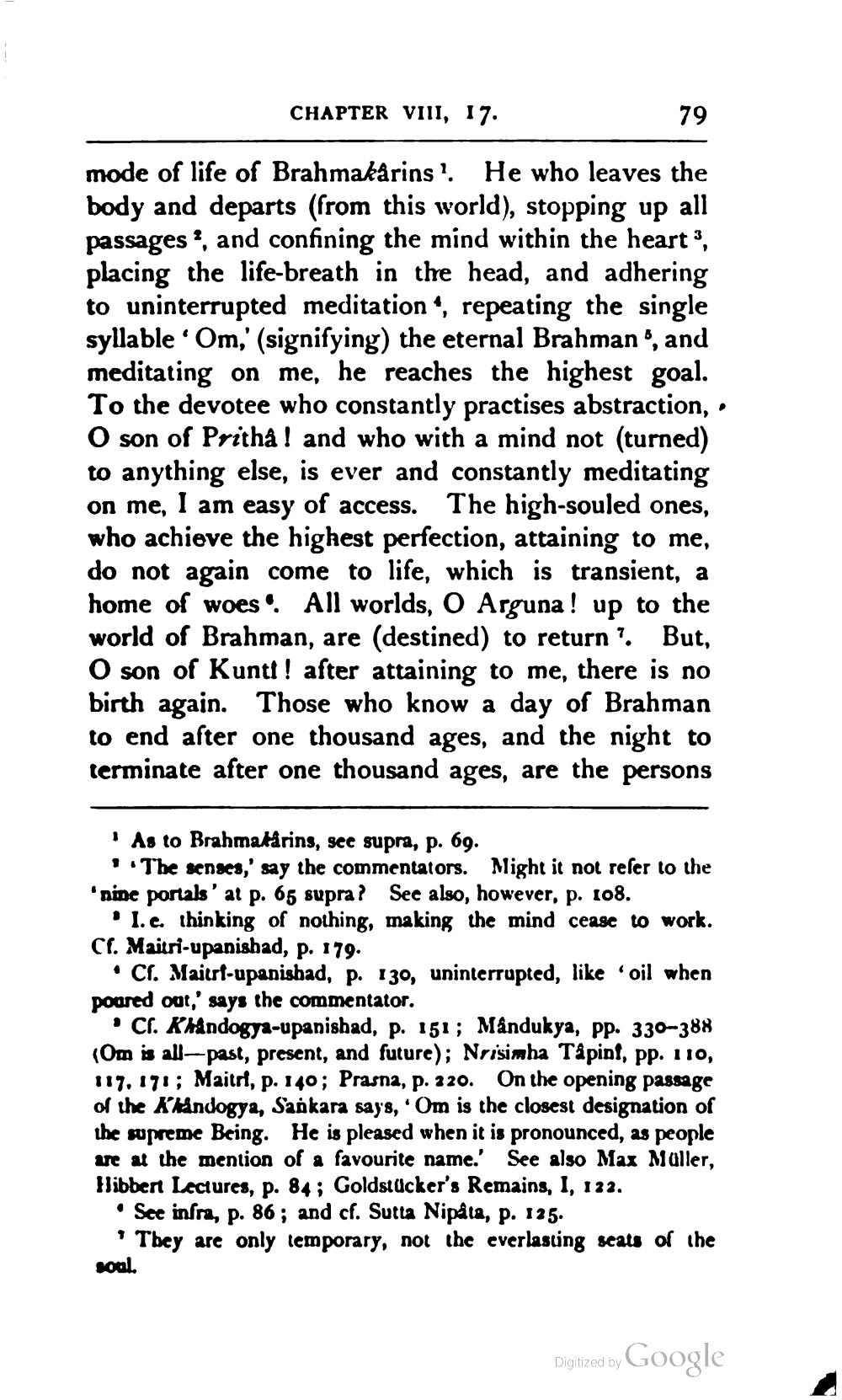________________
CHAPTER VIII, 17.
mode of life of Brahmakarins? He who leaves the body and departs (from this world), stopping up all passages ?, and confining the mind within the heart", placing the life-breath in the head, and adhering to uninterrupted meditation“, repeating the single syllable 'Om,' (signifying) the eternal Brahman', and meditating on me, he reaches the highest goal. To the devotee who constantly practises abstraction, O son of Prithål and who with a mind not (turned) to anything else, is ever and constantly meditating on me, I am easy of access. The high-souled ones, who achieve the highest perfection, attaining to me, do not again come to life, which is transient, a home of woes. All worlds, O Arguna! up to the world of Brahman, are (destined) to return?. But, O son of Kuntt! after attaining to me, there is no birth again. Those who know a day of Brahman to end after one thousand ages, and the night to terminate after one thousand ages, are the persons
As to Brahmatárins, see supra, p. 69. 1. The senses,' say the commentators. Might it not refer to the 'nine portals' at p. 65 supra? See also, however, p. 108.
'I.e. thinking of nothing, making the mind cease to work. Cf. Maitri-upanishad, p. 179.
• Cl. Maiurt-upanishad, p. 130, uninterrupted, like oil when poured oor,' says the commentator.
• Cl. Kandogya-upanishad, p. 151; Mândukya, pp. 330-388 (Om is all-past, present, and future); Nrisimha Tåpint, pp. 110, 117. 171; Maitri, p. 140; Prasna, p. 220. On the opening passage of the K'handogya, Sankara says, Om is the closest designation of the supreme Being. He is pleased when it is pronounced, as people are at the mention of a favourite name.' See also Max Moller, Hibbert Lectures, p. 84; Goldstücker's Remains, I, 123.
• See infr, p. 86; and cf. Sutta Nipala, p. 125. • They are only temporary, not the everlasting seats of the
soul.
Digitized by Google




